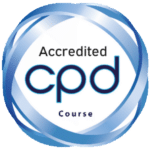Introduction to Process Control
Consultant/Trainer: Clive Beeby
Petrogenium Academy’s Introduction to Process Control training is designed to provide an “Awareness” level understanding of the process control discipline. A discussion of the full range of activities that fall within the discipline is covered. If available, PFS drawings from the site will be used to show where the concepts are being used in the participant’s facility.

Pricing
Location
Kuala Lumpur, Malaysa
Dates
About the Trainer
Participants
This course is intended for wide range of professionals from hydrocarbon process industries with entry level to mid-level industrial experience.


Learning Objectives
After completion of this course the participant will acquire knowledge of different aspects of Process Control.
The course includes all the areas of Process Control:
The course includes all the areas of Process Control:
- PID controller tuning, including use of a simulation to demonstrate some of the concepts.
- Base layer control.
- PID control as the most common base layer control algorithm.
- Complex control schemes
- Quality estimators.
- Multivariable Predictive Control
- Online optimisation.
- Dynamic process simulation.
- Troubleshooting of control systems through monitoring. Interaction with users and analysis
The course is presented over 3 days with regular breaks and time allowed to follow up participant queries on the concepts covered.
Day 1
Day 2
Day 3
Day 1
- Introduction
- Presenter introduction
- Participants introduction
- What is Process Control?
- Course outline
- PID Controller tuning
- Importance of PID tuning to overall plant performance.
- PID control description including the elements of the PID control loop
- First Order plus Deadtime process model
- Tuning parameters
- Tuning a controller including examples on a controller simulation and covering the differences in control of the main process parameters of flow, temperature, pressure, and level.
- Base Layer Control Review
- Why do it?
- How to do it?
Day 2
- Base Layer Control
- PID control
- Cascade control
- Split Range
- Override control
- Static decoupling
- Furnace coil balancing
- Air/fuel ratio control
- Compressor control
- Quality Estimators
- Why use them?
- Simple linear regression or calculation
- Commercially available products.
Day 3
- Multivariable Predictive Control (MPC)
- Why use it?
- General MPC characteristics.
- APC project outline.
- Online Optimisation
- Why use it?
- Online Optimisation elements
- Online Optimisation project outline
- Example scope of an online optimiser.
- Dynamic Process Simulation
- Why use it?
- General structure
- Control system troubleshooting
- What goes wrong?
- Control system monitoring through automation and interaction with users.
- Analysis and resolution
- Final Q & A
Programme
The course is presented over 3 days with regular breaks and time allowed to follow up participant queries on the concepts covered.
Day 1
Day 2
Day 3
Day 1
- Introduction
- Presenter introduction
- Participants introduction
- What is Process Control?
- Course outline
- PID Controller tuning
- Importance of PID tuning to overall plant performance.
- PID control description including the elements of the PID control loop
- First Order plus Deadtime process model
- Tuning parameters
- Tuning a controller including examples on a controller simulation and covering the differences in control of the main process parameters of flow, temperature, pressure, and level.
- Base Layer Control Review
- Why do it?
- How to do it?
Day 2
- Base Layer Control
- PID control
- Cascade control
- Split Range
- Override control
- Static decoupling
- Furnace coil balancing
- Air/fuel ratio control
- Compressor control
- Quality Estimators
- Why use them?
- Simple linear regression or calculation
- Commercially available products.
Day 3
- Multivariable Predictive Control (MPC)
- Why use it?
- General MPC characteristics.
- APC project outline.
- Online Optimisation
- Why use it?
- Online Optimisation elements
- Online Optimisation project outline
- Example scope of an online optimiser.
- Dynamic Process Simulation
- Why use it?
- General structure
- Control system troubleshooting
- What goes wrong?
- Control system monitoring through automation and interaction with users.
- Analysis and resolution
- Final Q & A